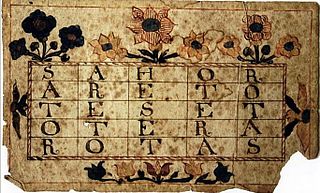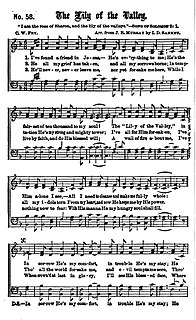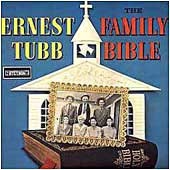
Benjamin Earl King, known as Ben E. King, was an American soul and R&B singer and record producer. He was perhaps best known as the singer and co-composer of "Stand by Me"—a US Top 10 hit, both in 1961 and later in 1986, a number one hit in the UK in 1987, and no. 25 on the RIAA's list of Songs of the Century—and as one of the principal lead singers of the R&B vocal group the Drifters notably singing the lead vocals of one of their biggest global hit singles "Save the Last Dance for Me".

Anthony Charles McPhee is an English blues guitarist, and founder of The Groundhogs. An early version of this band backed Champion Jack Dupree and John Lee Hooker on UK concerts in the mid-1960s. He is often credited as 'Tony (T.S.) McPhee'. He was given this name by the producer Mike Vernon who suggested adding 'T.S.' to his name when McPhee released a duet single with Champion Jack Dupree in 1966 called Get Your Head Happy, in order to make it look more like an official blues name. It stands for Tough Shit.
John Daniel Sumner was an American gospel singer, songwriter, and music promoter noted for his bass voice, and his innovation in the Christian and Gospel music fields. Sumner sang in five quartets and was a member of the Blackwood Brothers during their 1950s heyday. Aside from his incredibly low bass voice, Sumner's business acumen helped promote Southern Gospel and move it into the mainstream of American culture and music during the '50s and '60s.
Miriam Webster is an Australian Pentecostal worship leader and contemporary singer/songwriter. She is most well known for her classical worship songs with Hillsong Music Australia. Miriam won A.C.E State Student music award as a teenager for singing at the convention in Queensland, Australia. While staying in Sydney in 1996 she joined her friend who attended Hills Christian Life Centre which is known today as Hillsong Church to go to a Friday night youth service. Miriam was asked to sing this night as they were looking for an item so she sang a song she had penned years before called 'Fall upon your knees'. She joined the worship team months later and from there she has led worship in services, rallies, connect groups and conferences. She has toured Australia, New Zealand, Asia and the United States, and recently released her solo album Made Me Glad.

"More popular than Jesus" was part of a longer remark made by John Lennon during a 1966 interview in which he argued that the public was more infatuated with the Beatles than with Jesus, and that rock music might outlast Christianity. His opinions drew no controversy when originally published in the United Kingdom, but when republished in the United States a few months later, angry reactions flared up in Christian communities. The full quotation was:
Christianity will go. It will vanish and shrink. I needn't argue about that; I'm right and I'll be proved right. We're more popular than Jesus now; I don't know which will go first – rock 'n' roll or Christianity. Jesus was all right but his disciples were thick and ordinary. It's them twisting it that ruins it for me.

Russell Taff is an American gospel singer and songwriter. He has sung a variety of musical styles throughout his career including: pop rock, traditional southern gospel, contemporary country music, and rhythm and blues. He first gained recognition as lead vocalist for The Imperials (1977–81). One of his best-known performances is the song "Praise the Lord". He has also been a member of the Gaither Vocal Band, and occasionally tours with Bill Gaither in the Gaither Homecoming concerts. As a solo artist and songwriter, Taff is known for the 1980s anthem "We Will Stand".
Heroic virtue is a phrase coined by Augustine of Hippo to describe the virtue of early Christian martyrs and used by the Catholic Church. The Greek pagan term hero described a person with possibly superhuman abilities and great goodness, and "it connotes a degree of bravery, fame, and distinction which places a man high above his fellows". The term was later applied to other highly virtuous persons who do extraordinary good works.

Pow-Wows; or, Long Lost Friend is a book by John George Hohman published in 1820. Hohman was a Pennsylvania Dutch healer; the book is a collection of home- and folk-remedies, as well as spells and talismans. It is a translation of a German original, Der Lange Verborgene Freund, oder, Getreuer und Christlicher Unterricht fur Jedermann, Enthaltend: Wunderbare und Probmassige Mittel und Kunste, Sowohl fur die Menschen als Das Vieh The folk magic tradition called "pow-wowing" takes its name from the title of later editions of this book.
WOW Gospel 1999 is a gospel music compilation album in the WOW series. Released February 23, 1999, it features thirty-three songs on two CDs. It reached 94 on the Billboard 200 chart, and second place on the Top Gospel Albums chart in 1999.

"The Lily of the Valley" is a Christian hymn written by William Charles Fry (1837–1882) in London for the Salvation Army. Ira D. Sankey arranged the words to the music of "The Little Old Log Cabin In The Lane" composed by Will Hays.

Yes! Jesus Loves Me is an album by American fingerstyle guitarist and composer John Fahey, released in 1980. It was Fahey's poorest selling release.
Then Sings My Soul is a 2009 inspirational double CD album recorded by country music singer Ronnie Milsap. To date, it is his first and only gospel recording ever. It features several traditional hymns along with Christian-altered hit singles, including Milsap's "What a Difference You've Made in My Life" and Ben E. King's "Stand by Me". It was being marketed by an extensive TV mail order campaign.

The Family Bible is a gospel album by American country singer Ernest Tubb, released in 1963.
The Blue Ridge Quartet was a Southern gospel music group founded in 1946.

Songs for the Mama That Tried is the 32nd studio album by American country singer Merle Haggard with backing by The Strangers, released in 1981. A Gospel album, it reached Number 46 on the Billboard country albums chart.

Hymned Again is the second solo album from MercyMe singer Bart Millard. Like his previous effort, Hymned, No. 1, the album features modern takes on popular Christian hymns. The album was released on August 19, 2008. Country singer Vince Gill, again makes a collaboration on the song "Jesus Cares for Me". The album also features vocals by Christy Nockels.

"Stand by Me" should not be confused with "Stand by Me Father", by Sam Cooke and James W. Alexander.

The Pace Jubilee Singers were a gospel group founded by Charles Henry Pace in Chicago in 1925, and one of the first gospel groups to be recorded. They recorded more than 40 songs for Victor and for Brunswick Records in 1926–29, including spirituals arranged by Pace, and songs and hymns by Pace and Charles Albert Tindley and others. They performed in close harmony style, usually accompanied by piano or organ. Thomas A. Dorsey was briefly associated with them. In their later recordings, Hattie Parker is identified as soloist.

Adaline Hohf Beery was an American author, newspaper and magazine editor, songbook compiler, as well as a hymnwriter. Born into a Pennsylvania Dutch community, her first job after graduating from Mount Morris College in Illinois was as a compositor in a printing office. She served as the editor of The Golden Dawn magazine and The Young Disciple child's paper; compiled a song-book, Gospel Chimes; and was employed by the Brethren Publishing House.















